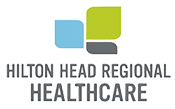Anesthesia

Many of the procedures we perform make use of IV sedation or general anesthesia. We know that sedation can be stressful and anxiety-filled event for first-time patients. Our goal is to make our patients as comfortable as possible. Our training and technology allow us to perform both simple and complex procedures in a relaxed environment. Our doctors have completed thousands of procedures using IV sedation and general anesthesia. With the assistance of our staff RN, we are able to complete our procedures in a safe and well-monitored setting, and in a manner that provides the highest level of patient security.
In Depth
Removing the Anxiety Factor
A child wonders what the first day of school will be like. Someone is about to start a new job. A young couple is about to be married. Each of these situations is a classic anxiety producer. What they have in common is that each involves the unknown. And that's what anxiety is: the fear of a specific upcoming event that, in all likelihood, you've never before experienced.
An upcoming visit to an Oral and Maxillofacial Surgeon is another potential anxiety producer. In this case, the patient is typically most concerned about possible pain — whether the procedure is going to hurt.
The good news is that whether your procedure requires local or intravenous anesthesia, today's technology makes it possible to perform complex surgery in the oral and maxillofacial surgery office with little or no discomfort for the patient. Knowing this should start to reduce your level of anxiety.
Extensive Training and Experience in the Control of Pain and Anxiety
The ability to provide patients with safe, effective outpatient anesthesia has distinguished the specialty of oral and maxillofacial surgery since its earliest days. As the surgical specialists of the dental profession, oral and maxillofacial surgeons are trained in all aspects of anesthesia administration. Following dental school, oral and maxillofacial surgeons complete at least four years of training in a hospital-based surgical residency program alongside medical residents in general surgery, anesthesia and other specialties. During this time, OMS residents must complete a rotation on the medical anesthesiology service, during which they become competent in evaluating patients for anesthesia, delivering the anesthetic and monitoring post-anesthetic patients. As a result of this extensive training, oral and maxillofacial surgeons are well-prepared to identify, diagnose and assess the source of pain and anxiety within the scope of their discipline, and to appropriately administer local anesthesia, all forms of sedation and general anesthesia. Further, they are experienced in airway management, endotracheal intubation, establishing and maintaining intravenous lines, and managing complications and emergencies that may arise during the administration of anesthesia.
Putting Your Mind at Ease
The best way to reduce anxiety is to make certain you know what to expect during and after surgery. As with most anxiety-producing situations, the more you know, the less you have to be anxious about. Prior to surgery, your Oral and Maxillofacial Surgeon will review with you the type of anesthetic to be used, as well as the way you're likely to feel during and after the operation.This is the time to discuss any concerns you may have about any facet of the operation.
During surgery, one or more of the following may be used to control your pain and anxiety: local anesthesia, nitrous oxide-oxygen, intravenous sedation and general anesthesia. Commonly, patients describe their feelings during surgery as comfortable and surprisingly pleasant.
After surgery, you may be prescribed a medication to make you as comfortable as possible when you get home.
The information provided here is not intended as a substitute for professional medical advice, diagnosis, or treatment. It is provided to help you communicate effectively with your oral and maxillofacial surgeon. Always seek the advice of your oral and maxillofacial surgeon regarding an oral health concern.
The American Association of Oral and Maxillofacial Surgeons (AAOMS), the professional organization representing more than 9,000 oral and maxillofacial surgeons in the United States, supports its members' ability to practice their specialty through education, research and advocacy. AAOMS members comply with rigorous continuing education requirements and submit to periodic office examinations, ensuring the public that all office procedures and personnel meet stringent national standards.
The information provided here is not intended as a substitute for professional medical advice, diagnosis, or treatment. It is provided to help you communicate effectively with your oral and maxillofacial surgeon. Always seek the advice of your oral and maxillofacial surgeon regarding an oral health concern.
© 2005-2013 American Association of Oral and Maxillofacial Surgeons (AAOMS). All rights reserved.
• • •











